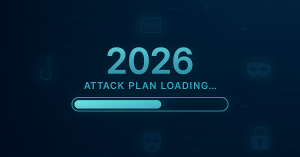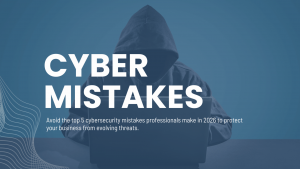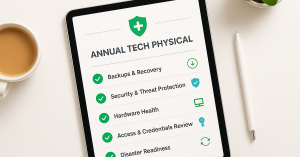December 23, 2024
Is Your Social Security Number (SSN) Safe? What You Need to Know
By now, most people's Social Security numbers (SSNs)—one of the most critical pieces of personal data—have found their way onto the dark web. Thanks to data breaches at major corporations, government agencies, and even healthcare providers, millions of SSNs are circulating in cybercriminal circles.
It's an alarming reality—but is it really that big of a deal?
Spoiler alert: yes, it is. Here's why a compromised SSN can wreak havoc on your life, how to check if yours has been leaked, and what to do if it has.
Is a Leaked Social Security Number Really That Serious?
Your Social Security number is a cornerstone of your identity, especially in the United States. With just your SSN, a hacker can access a world of financial and personal information, allowing them to impersonate you, take out loans, and potentially access sensitive accounts.
Even if you don't see an immediate impact, criminals often hold onto stolen SSNs for years, waiting for the perfect moment to exploit them.
What Can Happen If Someone Has Your Social Security Number?
If your SSN falls into the wrong hands, the consequences can include:
- Identity Theft: Fraudsters can use your SSN to open credit accounts, take out loans, or even file false tax returns in your name.
- Employment Fraud: Someone could use your SSN to obtain a job, leaving you with unexpected tax liabilities.
- Medical Fraud: Criminals may use stolen SSNs to receive healthcare under your name, creating false medical records that could complicate your future care.
Take the Equifax data breach of 2017, for example. This incident exposed the SSNs and personal information of 147 million people. Many victims faced fraudulent credit card applications, false tax returns, and other issues—some of which persist to this day.
Signs Your Social Security Number Has Been Stolen
Worried your SSN might already be in use? Watch for these red flags:
- Unexpected Mail: Receiving credit card offers, debt collection notices, or bills for accounts you didn't open.
- Surprises on Your Credit Report: Discovering unfamiliar accounts or inquiries from unknown sources.
- Tax Return Issues: Being notified by the IRS of multiple tax returns filed in your name or being denied a refund you expected.
- Unfamiliar Medical Bills: Seeing strange entries in your medical records or receiving bills for services you didn't receive.
How to Check if Your SSN Was Leaked—and Protect Yourself
Whether you've noticed these warning signs or want to stay proactive, here's how to safeguard your identity:
1. Monitor Your Credit Report
Review your credit report for unfamiliar accounts or activity. You're entitled to a free credit report annually from each of the major credit bureaus—Experian, TransUnion, and Equifax. Make it a habit to check your reports regularly.
2. Use an Identity Theft Protection Service
Services like Experian IdentityWorks or LifeLock can monitor your SSN and alert you to suspicious activity. While these services can't prevent identity theft, they can help you respond quickly to potential issues.
3. Freeze Your Credit
Freezing your credit restricts access to your credit report, making it much harder for someone to open new accounts in your name. You can freeze and unfreeze your credit for free through the major credit bureaus.
4. Sign Up for SSN Alerts
The Social Security Administration offers alerts for specific account activities, such as changes to your Social Security account. While not comprehensive, these alerts add an extra layer of security.
What to Do Immediately If Your SSN Is Leaked
If you confirm that your SSN has been compromised, take these actions right away:
-
File a Report with the FTC
Visit IdentityTheft.gov to file a report with the Federal Trade Commission. The site provides a personalized recovery plan based on your situation. -
Contact the Credit Bureaus
Notify Experian, Equifax, and TransUnion that your SSN has been compromised. Place a fraud alert on your credit report to make lenders verify your identity before issuing credit. -
Freeze Your Credit
If you haven't already, freeze your credit to prevent new accounts from being opened. -
File a Police Report
If the identity theft involves financial loss or criminal activity, file a report with your local police department. This documentation can help you resolve issues with creditors. -
Notify Financial Institutions
Let your bank and other financial institutions know your SSN has been compromised. They can add alerts to your accounts and monitor for suspicious activity.
Protecting Your Business: Why Cybersecurity Matters
For small and medium-sized businesses, safeguarding Social Security numbers and other personally identifiable information (PII) is critical. A compromised SSN doesn't just put individuals at risk; it can also expose a business to:
- Legal and financial liabilities
- Damage to reputation
- Potential data breaches affecting employees and clients
A robust cybersecurity plan—including data encryption, network security, and employee training—is essential to protecting sensitive information.
Need help securing your business against data breaches and identity theft? Our cybersecurity team is here to assist. ClickheretoscheduleaFREESecurityRiskAssessment and protect your business from costly cyber threats. Call us at 626-701-5005



